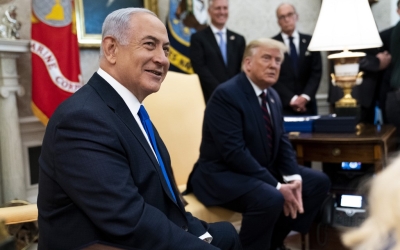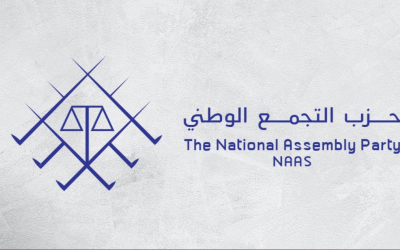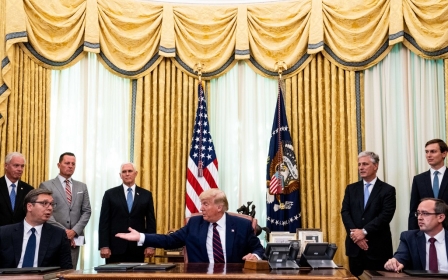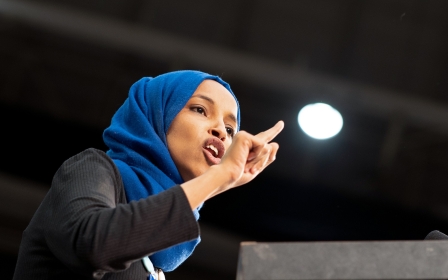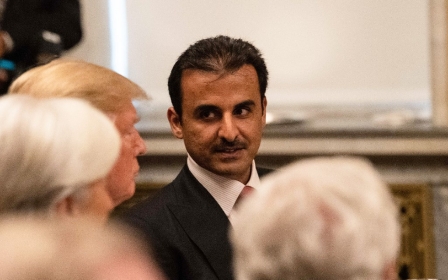Arab states are forging ties with Israel to please US, Ted Cruz says
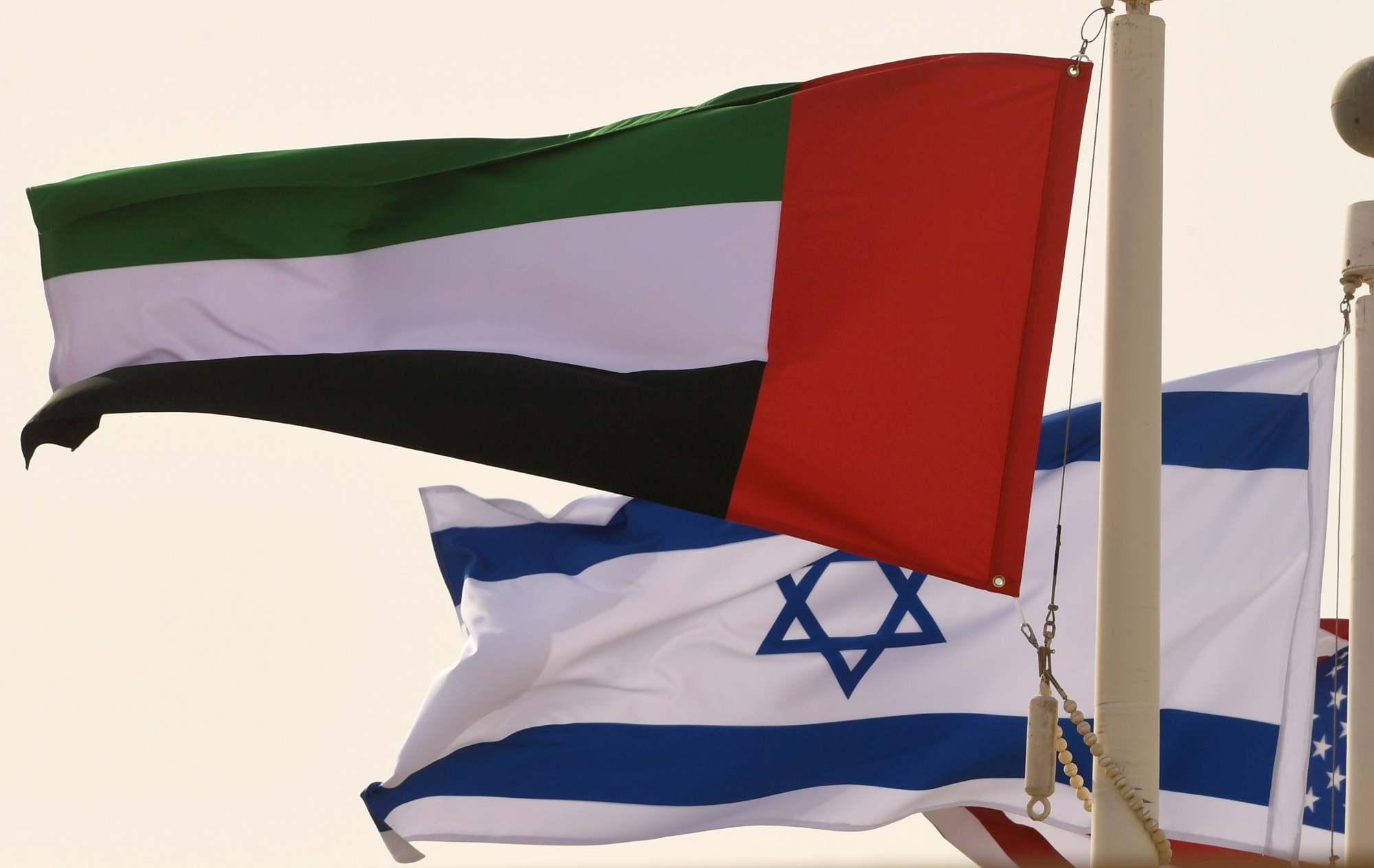
Ambassadors of the United Arab Emirates and Saudi Arabia in the United States have told Senator Ted Cruz that they are forging ties with Israel to please Washington, the key Republican legislator revealed on Thursday.
Speaking during a hearing at the Senate Foreign Relations Committee, Cruz lauded the Trump administration for what he called "clarity" in standing "resolutely and unshakably" with Israel - a position that he said is pushing Arab countries towards normalisation.
"In the last couple of weeks, I've had conversations directly with the ambassador from the UAE and the ambassador from Saudi Arabia," Cruz, a staunch conservative, told the committee.
"Both of them said: 'The reason we are cutting this deal is because we want to be friends with America. We want to be closer friends with you and we know you care that we make nice with Israel, so we're willing to do that because we want a closer friendship and alliance with the United States'."
'The Saudis, as a consequence of killing Jamal Khashoggi, got a smiling photo-op with Secretary Pompeo'
- Senator Chris Murphy
The UAE announced normalising relations with Israel in August. It was joined by Bahrain weeks later, and both countries signed agreements at the White House last week, establishing diplomatic relations with the Israeli government.
New MEE newsletter: Jerusalem Dispatch
Sign up to get the latest insights and analysis on Israel-Palestine, alongside Turkey Unpacked and other MEE newsletters
Palestinian leaders and human rights activists have denounced the deals, with Palestinian Prime Minister Mohammad Shtayyeh calling the White House ceremony "another date to add to the calendar of Palestinian misery".
President Donald Trump and his top aides have said that more Arab countries will soon follow suit in recognising Israel.
Saudi officials initially suggested that Riyadh would only formalise ties with Israel through the 2002 Arab peace initiative, which links normalisation to finding a just solution to the Palestinian issue, including establishing a state within the 1967 borders with East Jerusalem as its capital.
Still, Saudi Arabia's King Salman voiced support for the US-brokered normalisation deals during a speech to the UN General Assembly on Wednesday.
"We support the efforts of the current US administration to achieve peace in the Middle East," the Saudi monarch said.
'Very dangerous'
On Wednesday, Cruz said Israeli-Arab rapprochement was the result of the Trump administration's decisions in favour of the Israeli government, including the embassy move to Jerusalem and the nixing of the Iran nuclear deal.
"That is an incredible victory for clarity in foreign policy," he said.
Cruz's remarks came in response to a comment by Senator Chris Murphy, who had grilled State Department officials over the administration's failure to push Saudi Arabia, the UAE, and Egypt on upholding human rights and US interests.
Murphy, a Connecticut Democrat, asked Elliott Abrams and David Hale, two top diplomats who work on Middle East issues, what the State Department was doing to hold the UAE accountable over the transfer of American weapons to "very dangerous" militias in Yemen.
He also questioned the officials over the lack of "public action" against Cairo over the death of US citizen Moustafa Kassem in an Egyptian jail in early 2020.
Kassem, one of tens of thousands of political prisoners in Egypt, was arrested in 2013 as part of a massive crackdown on dissent by the Egyptian military after the coup that brought President Abdel Fattah el-Sisi to power.
He died after going on a hunger strike to protest the dire conditions of his imprisonment. Human Rights Watch had called for imposing human rights conditions on US aid to Egypt after his death.
'Serious conversations'
Hale, who serves as under secretary of state for political affairs, said the administration has had "serious conversations" with the governments of both countries, saying that the "Emiratis understand exactly what is permitted and what is not".
"We will continue to have those conversations with the Egyptians and to spell out how unacceptable this kind of abusive behavior is," Hale said.
Murphy retorted by citing the lack of accountability for the murder of Khashoggi.
The slain journalist was murdered and dismembered at the hands of Saudi government agents at the kingdom's consulate in Istanbul in 2018. Since the killing, Trump has moved to shield the Saudi leadership from meaningful rebuke.
"The Saudis, as a consequence of killing Jamal Khashoggi, got a smiling photo-op with Secretary [of State Mike] Pompeo," Murphy said.
"Apparently from what we're hearing today, the Emiratis and the Egyptians have gotten stern private conversations. That is not a recipe to send a message to the rest of the region and the world to obey US law and to treat US citizens well and to act in accordance with our interests.
"I think this is part and parcel of the reason why America is getting very little from our allies."
That's when Cruz leapt to the defence of Washington's Arab allies, rejecting Murphy's rebuke of Riyadh over killing Khashoggi, who resided in Virginia and wrote for Middle East Eye and the Washington Post.
"The Saudis, whom the senator from Connecticut just cast aspersions at them, played a major role in brokering Middle East peace, including for the first time allowing Israeli planes to overfly Saudi airspace," Cruz said.
Middle East Eye delivers independent and unrivalled coverage and analysis of the Middle East, North Africa and beyond. To learn more about republishing this content and the associated fees, please fill out this form. More about MEE can be found here.


